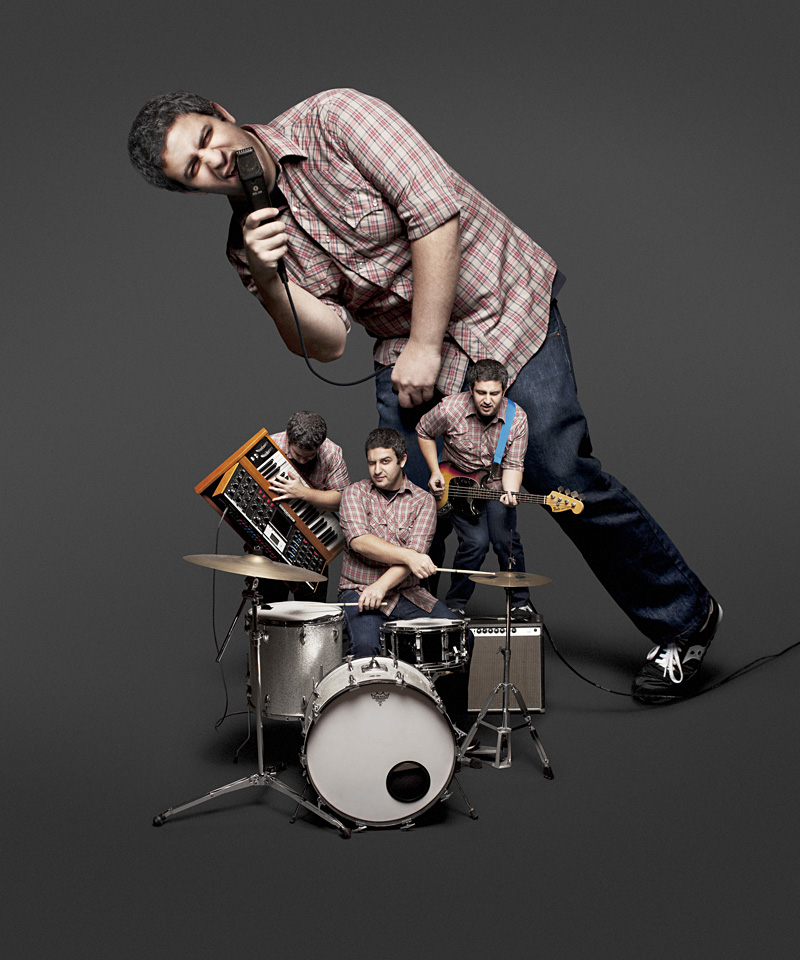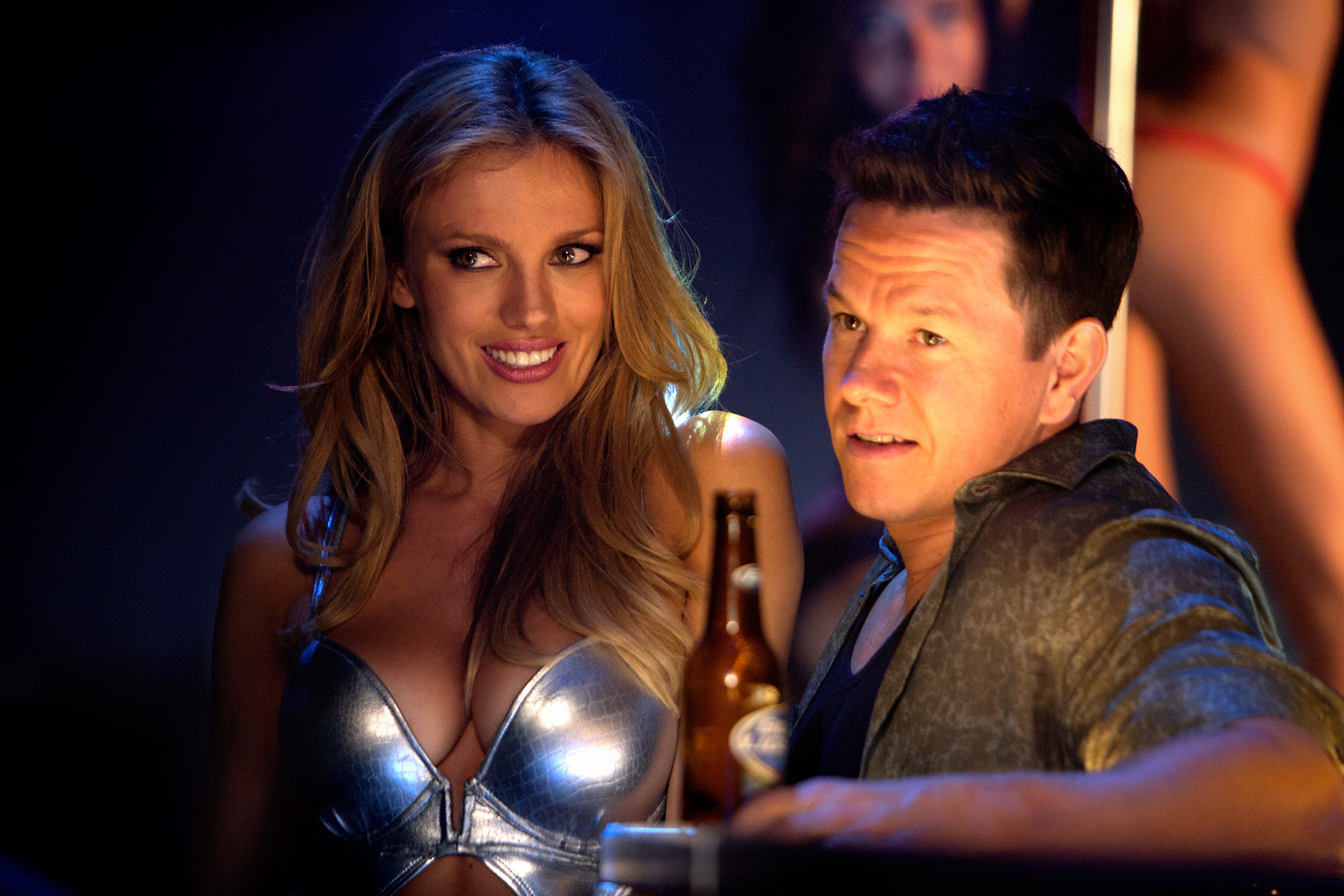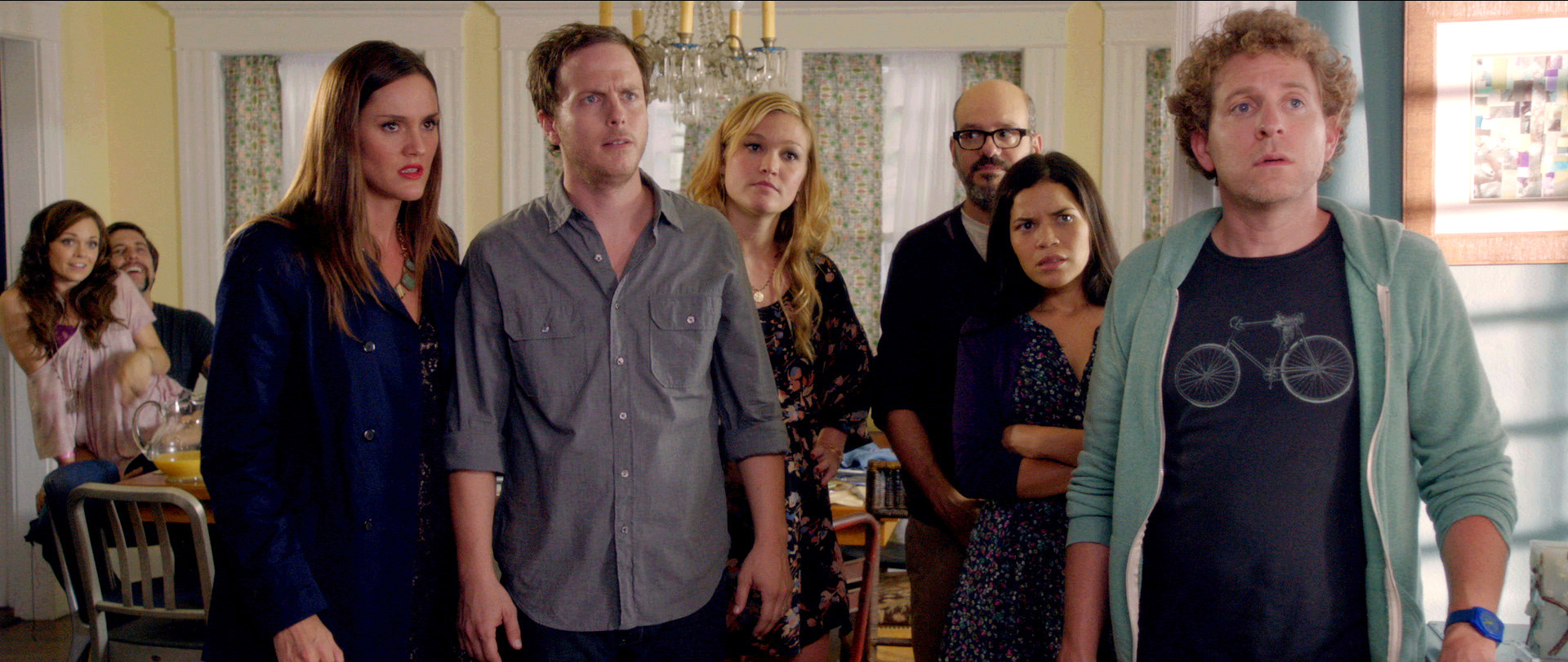On a recentSaturday afternoon, West Seattle’s Easy Street Records is crowded, with customers haphazardly milling around with their friends, waiting to be seated for brunch at the connecting Easy Street Cafe. Record-shopping is secondary to them right now.
Eric Elbogen, the sole member of Seattle band Say Hi, stands next to me, hands stuffed into his coat pockets—he’s already admitted to feeling awkward—while I make an announcement over the store’s PA system.
“I’m here to play you a preview of a new record that comes out on Barsuk Records on January 25, it’s called Um, Uh Oh, and it’s from a band called Say Hi,” I explain. “I’m going to be at the counter, and I’d love to hear what you think of the record.”
Although some Say Hi fans, alerted by a Tweet that Elbogen wrote the day before, have showed up to hear the unreleased album, most of the customers stare at me, not recognizing Elbogen, wondering why I’m giving them this information instead of bringing them coffee or a side of bacon.
Elbogen and I shuffle around the store for the first few minutes—he’s talking about the records he’s been listening to lately (Wye Oak, and another one-man band from New York called Yellow Ostrich); I’m mostly trying to get him to relax before we start talking to the strangers around us.
Um, Uh Oh is Say Hi’s seventh studio recording, and it’s markedly darker material for Elbogen, whose band—under an earlier name, Say Hi to Your Mom, later truncated—rose to fame in the indie scene in the early aughts by releasing lighthearted music about vampires and robots. The music is both popular and profitable. In 2010 alone, Elbogen’s tunes appeared in a Cadillac commercial and an episode of Gossip Girl (“in a pretty hot sex scene!” he notes). The moodiness of Um, Uh Oh seems curious coming from a guy who’s had so much to be happy about.
“It’s a melancholy poppiness, not super-sunshine,” observes Grady Tyree, who works the counter at Easy Street. “Like ‘Yeah, things are cool, but they could be better.’ “
“Normally I just walk through . . . background music,” says a middle-aged male customer. “But when I came in I noticed I was paying attention to the beginning of each song.” He smiles when I tell him that Elbogen is the musician. “It got my attention!”
“Thank you, thanks, that’s really nice of you,” replies Elbogen—he’s highly gracious to each of the commenters, perhaps as a mask for his nervousness at the up-front situation. Ultimately it’s a more satisfying method of feedback than what he’s used to.
Later, over turkey sandwiches at West 5 a few doors down, the 34-year-old tells me his issues with the double-edged sword of technology: In an earlier decade, he couldn’t have kick-started his own career the way he did without a label’s help. But these technological advances aren’t just spawning musicians, but critics too.
“In this day and age, everyone is more than willing to make their opinions known, via iTunes comments, Facebook posts. And everybody thinks that they’re a critic,” he says. “I guess my sadness about humanity comes from the fact that some little pissant kid from the middle of nowhere who decides to boycott my band because I changed the name of it, the fact that somebody will read that and not buy my record bums me out.”
Elbogen has to respect a harsh critic, though—he is one himself. Say Hi is, for all intents and purposes, a solo project—Elbogen writes all the music and plays all the instruments on the recordings. Bandmates are purely for touring purposes—hired guns, if you will. And Elbogen’s a tough boss; he has no qualms about firing someone who doesn’t perform up to his standards—he’s like the Donald Trump of indie rock. No Say Hi tour has ever featured the same lineup, and Elbogen says he’s fired band members for everything from getting too drunk at shows to “just hating each other on a personal level.”
In person, Elbogen has an easygoing aura, and spends a good 15 minutes at Easy Street chatting about the music biz with a middle-aged man who’s in a “dad band” (he offers to open for Say Hi anytime). But professionally, Elbogen’s a perfectionist, and he’s the first to admit that he’s difficult to work for.
“[A working relationship] becomes a personal relationship, very much like you’re dating someone,” he says. “People have actually quit and then called me up and ripped apart my personality and my methods of doing things. I’ve hung up the phone, and felt like I’d been in a car accident or something.”
Sitting across the table from me at West 5 as he makes this statement, carefully forking his potato salad, wearing all black, Elbogen seems remarkably put together, unruffled, mature. This is his world—live in it, or leave. But that’s got to be some kind of mask too—despairing emotions triggered by these professional and romantic breakups and heartbreaks (Elbogen says he’d like to get married and have kids someday, but is currently single) play a significant part in Um, Uh Oh.
“This record is kind of a jumble of me getting dumped by girls and me having to fire someone and having someone quit, and also my relationship with journalists, with how Say Hi records have been received in the past,” says Elbogen. “It’s also about me getting older. I’ve been trying to make it in this racket for quite a while. In all of those things, there’s a moment where you first realize something isn’t going to work out. The moment that that hits you, my internal monologue goes ‘Um, uh oh.'”
But for all the frustrations and sorrows of Um, Uh Oh, it’s a remarkably relaxed record. Previous Say Hi material was written as seen through the lens of fictitious characters and situations that Elbogen created; his new songs finally express his true being, however moody, confusing, or weary that may be. And if his working and romantic relationships haven’t exactly panned out or led to anything deep or meaningful yet, that can’t be said of his blunt exploration of his own psyche.
“There are moments [where] I very strangely feel like I’m 85 years old, like, ‘Well, I guess I gave it a go, and we will never graduate to playing bigger venues and selling more than ten thousand records, and I guess I never will find a wife and have kids,’ ” he says. “[The album cut “Devils”] is about having that internal monologue. The easy thing to do would be to shrivel up and watch television on the couch for the rest of my life. But actually, when I think about it, that’s not very accurate. The devil has tempted me and almost won, but I’m trying to still get back from that situation.”








